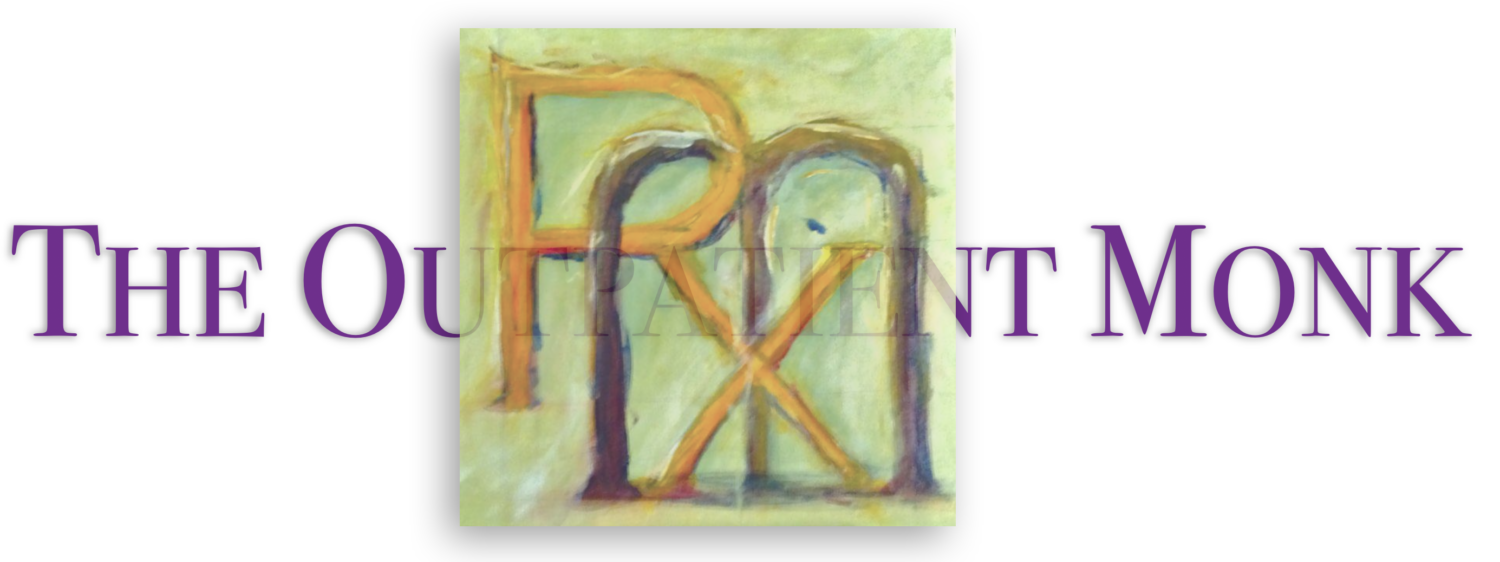David J. Dunn is a good friend whose friendship helps sustain my faith. He also writes my favorite blog on the Huffington Post and one of the sharpest Christian Blogs on the internet providing keen and refreshingly Christian insights on on otherwise boringly controversial topics. Here he offers some particularly helpful reflections on imperfect faith.

This is the cross I received at my chrismation. It’s tarnished. It is always tarnished. It was bright, shiny, and new the day that I first received it. It became sullied almost immediately afterwards.
It’s not that I haven’t tried to polish it. I have actually tried to polish it several times. The dark smudges will go away for a couple of hours, but by the time church is over, the imperfections of my cross will reappear. I have decided that that’s way the it’s supposed to be. I think God is trying to tell me something. I am an Orthodox Christian. I should believe in miracles. A common miracle in the Orthodox Church is weeping icons. Icons that drip myhrr. I have never seen a weeping icon, but my cross won’t get clean.
Yeah, I’m saying that the cross is a miracle. I have to admit that my “default setting” is to be suspicious about that sort of thing. I am pretty sure that if I were ever confronted with a weeping icon, I would not see the tears. I do not have the eyes to see. That’s the way it is with suspicious people like me. It’s not that miracles do not happen. It’s that we cannot overcome our own lack of faith. “Lord, I believe; help my unbelief” (Mark 9:24). This is the cry of my heart. All the time. At least on those days when I remember to pray at all.
Somebody else may have an alternate explanation for why I can’t keep my cross looking polished. Miracles are that way, “because seeing they do not see, and hearing they do not hear, nor do they understand” (Matt. 13:13). I once saw a bumper sticker that read, “Some things you have to believe in order to see.” It’s trite, but more or less correct. Under any other circumstances, accepting evidence that conforms to your own opinion is called confirmation bias. But when we are dealing with God – the one whom St. Anselm rightly defined as “that than which nothing greater can be conceived” – confirmation bias is all we’ve got.
There is no proof for God. Apologetics is unbelief.
For readers who know Anselm a little bit, it might seem inconsistent to say that Anselm was not trying to prove the existence of God. But those who know Anselm better understand that what he was doing with his a priori argument was something like what I am trying to do with this cross, only backwards. Anselm had faith, but he sought understanding. I understand a lot of things; what I lack is faith!
If I were to speculate (and that is basically what faith is), I would guess that God knows I read Moltmann. Though I have broken with the genius from Tübingen in many ways, my theology remains forever marked by the suffering, crucified God of the cross. I still love the communicatio idiomatum of Alexandrian christology – Jesus for me will always be the God who weeps, the God who sufffers, and the God who dies to God, splayed out, naked, and mocked. The cross is something beautiful, but its beauty is in its ugliness. Its power is in its shame. I love beauty, and Orthodoxy is beautiful. We rightly stress the triumph of the Resurrection over the powers of sin, death, and hell, but maybe God knows how easy it is for me to love beauty for its own sake. Maybe God knows how much I deal with the temptation of ecclesial lust – a particular form of pride – that makes me haughty, pretentious, and obnoxious.
I think that is why my cross is sullied, because the cross is sullied, and I am sullied too. (My wife has an identical cross, and hers remains as shiny as the day she first received it.) There is nothing here, nothing in my heart, worth saving, but that is the good news of the gospel. I am saved by grace. Thanks be to God.
I remember a song that used to be sung at the Nazarene Church I attended when I was younger (the church that first taught me what it means to be a Christian). The song went, “I’m just a sinner, but I’m saved by grace.” I agree with everything about that song, except the “but.” I think it should be an “and” instead. I am a sinner, and I am saved by God’s grace. There is never a moment when I am not sullied. Try as hard as I can to clean up my heart, it remains tarnished. There is no hope for me but the resurrection. No hope but the eschaton, when the desire for God that I want to have will be the desire for God that I truly have. At least that is my hope. Thanks be to God!
In the meantime, I only have my tarnished miracle – a reminder that in this life I must keep hoping and praying. “Lord Jesus Christ, Son of God, have mercy upon me, a sinner.”
Visit David’s critical writings on culture at the Huffington Post here.

